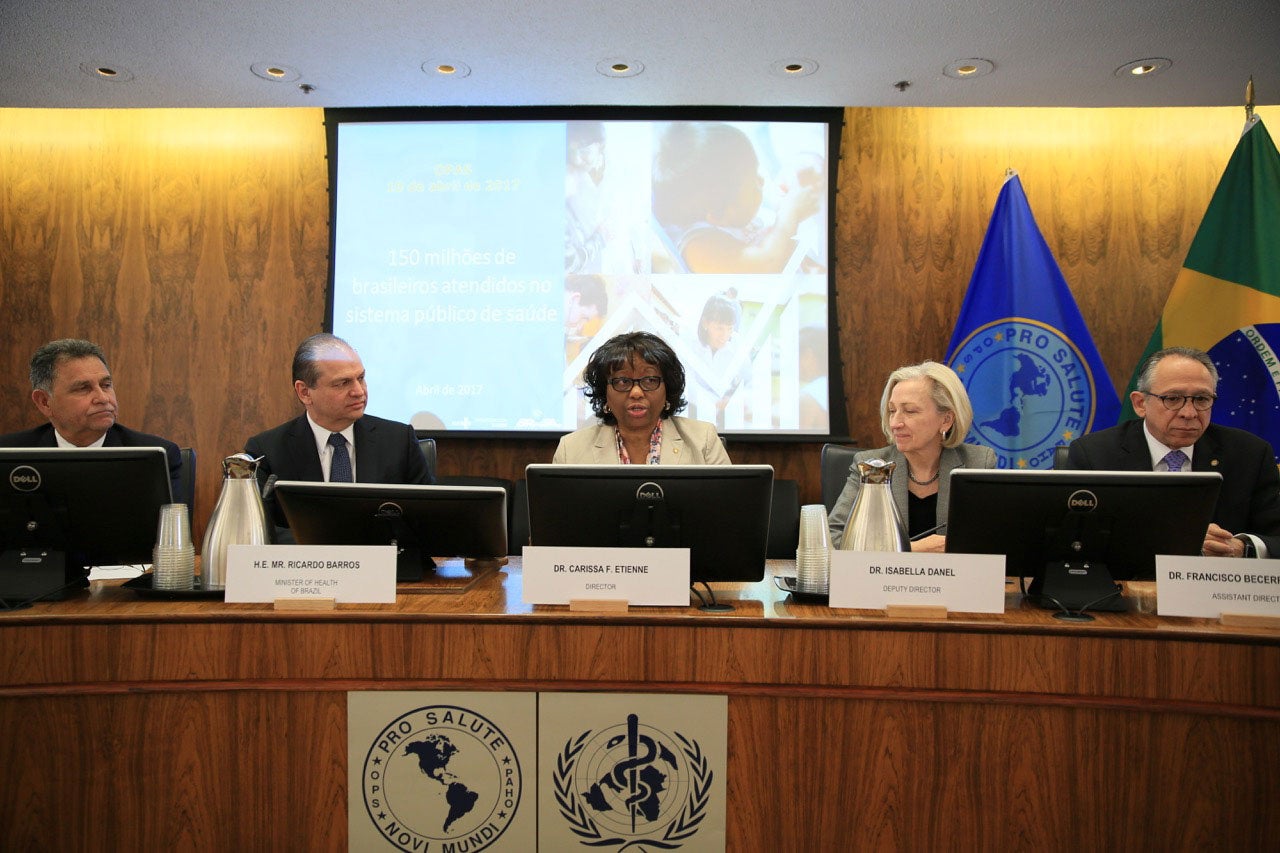Washington, D.C., 10 April 2017 (PAHO/WHO)-The main challenges for Brazil's health system include improving its management, financing, transparency and efficiency, according to Brazilian Health Minister Ricardo Barros, who visited the Pan American Health Organization (PAHO) today.
In a presentation with PAHO Director Dr. Carissa F. Etienne to PAHO staff, Barros said that about 70% of Brazil's population receives care through the public health system.

Brazil is now providing 300 million doses of vaccines against 20 diseases each year and has boosted its immunization efforts against yellow fever with 21.6 million extra doses of vaccine, he said. Brazil has seen a recent outbreak of sylvatic yellow fever in 10 states and the Federal District have reported 604 confirmed human cases of yellow fever, with 202 confirmed deaths.
The country has adopted the World Health Organization recommendation of a single dose of yellow fever vaccine and is preparing for fractioning of vaccine doses, if needed. In addition, Brazil's Ministry of Health has agreed with the Ministry of Education to provide immunizations in schools, including the HPV vaccine for adolescents.
Barros said that keeping up the fight against the Aedes aegypti mosquito is a major challenge, although there have been significant reductions in cases of dengue, chikungunya, and Zika. Brazil was the epicenter of an outbreak of Zika virus starting in 2015, with some 207,000 confirmed cases throughout the Americas. Among pregnant women, 24 countries and territories in the Americas reported confirmed cases of congenital syndrome associated with Zika virus infection.
The government has launched a weekly clean-up campaign, "Sexta-Feira sem mosquito," in which residents dedicate each Friday to eliminating mosquito breeding sites around their homes.
Brazil is committed to reducing obesity in its population by 2019, chiefly by reducing consumption of sugary beverages by 30% and by increasing consumption of fruits and vegetables.
Other actions the health system is taking include strengthening health promotion and disease prevention activities, improving information systems for better management and transparency, and expanding the use of electronic health records to avoid duplication of diagnostic exams and to better monitor prescription medications. He also noted that Brazil has the largest organ transplantation system in the world, with about 24.9 million transplants a year.
Brazil also wants to increase the number of Brazilian doctors in the country's "Mais Medicos" program. Currently the program has 18,000 doctors working in 4,000 municipalities providing primary health care to some 63 million Brazilians, said Barros.
PAHO Director Etienne praised Brazil's "very high levels of cooperation" with and support of PAHO and noted that the country was one of PAHO's founding members in 1902. She also praised Brazil for its strong response to the Zika epidemic.



